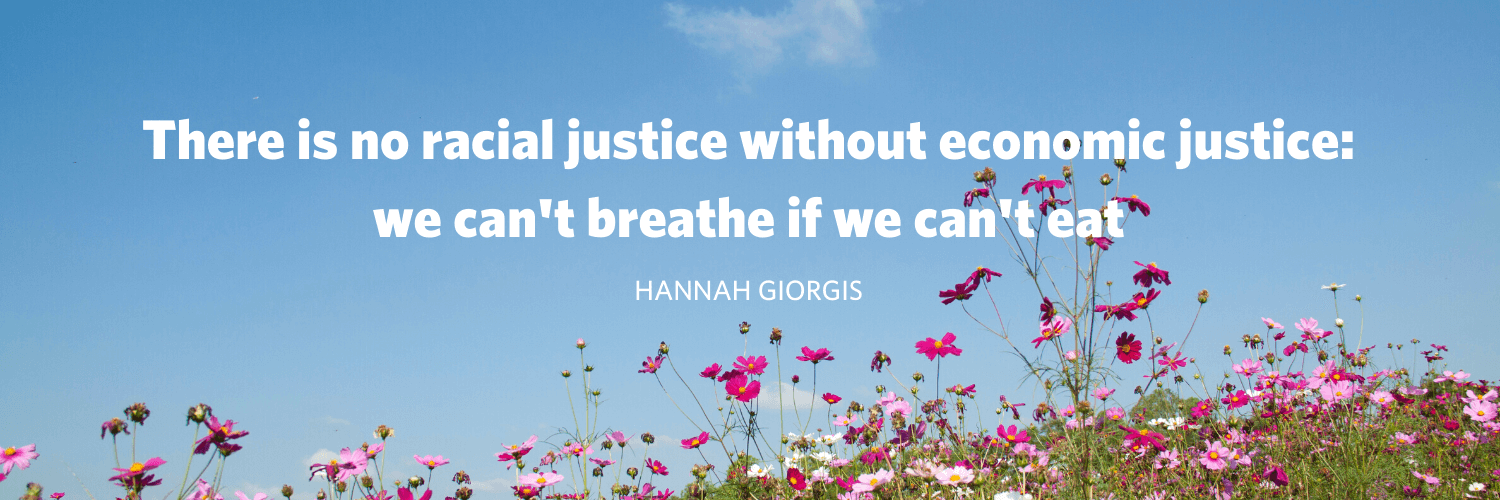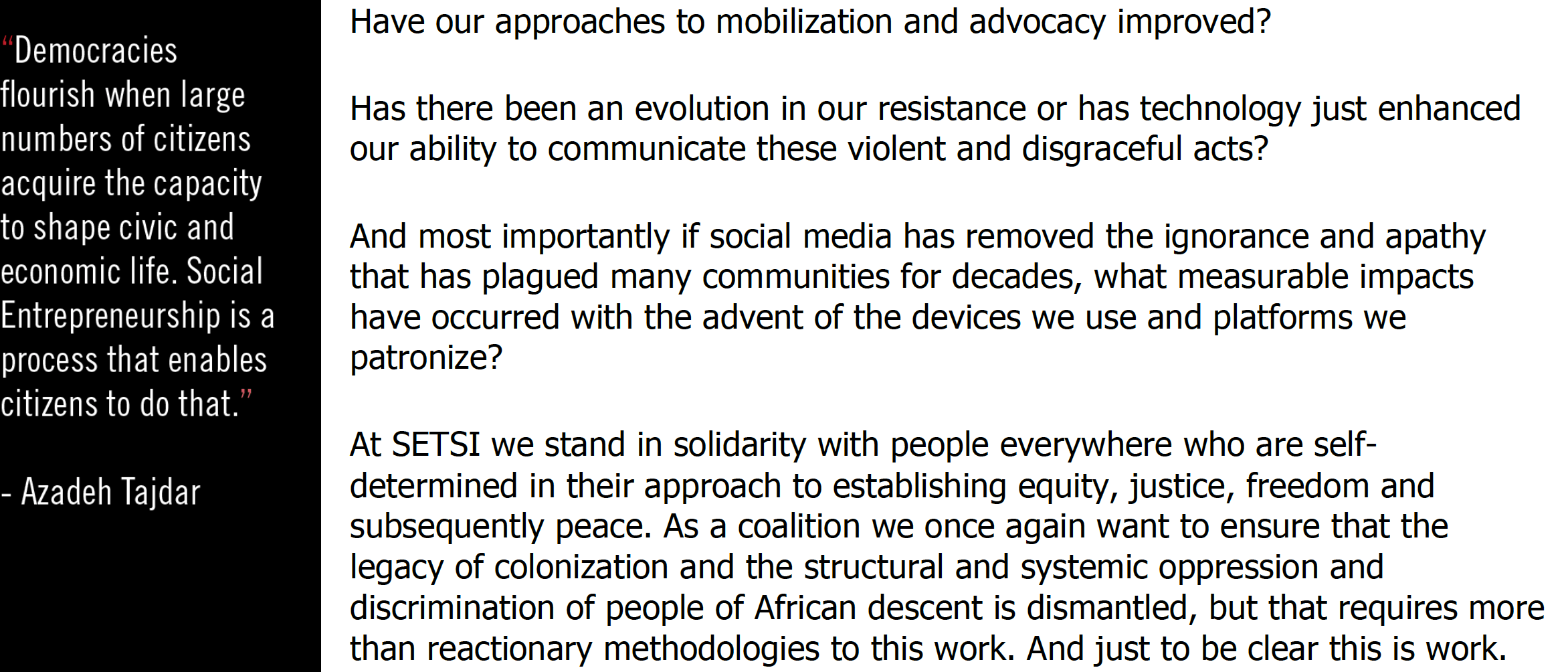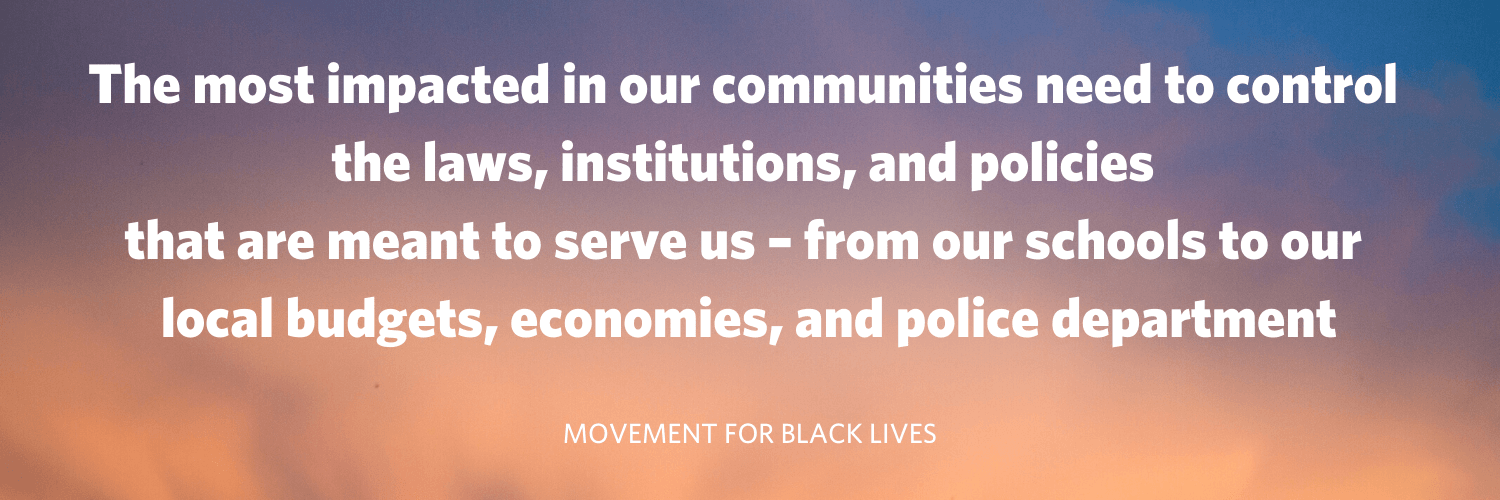 CCEDNet member Roger Peters is an engineer and policy analyst with over 40 years experience in co-operatives, clean energy, and local economic development. He is a founding member of the Ottawa Renewable Energy and CoEnergy Ontario Co-operatives.
CCEDNet member Roger Peters is an engineer and policy analyst with over 40 years experience in co-operatives, clean energy, and local economic development. He is a founding member of the Ottawa Renewable Energy and CoEnergy Ontario Co-operatives.
The virtual shut down of the World’s economies as a result of COVID-19 has exposed their fragility and accentuated their inequality. Our current reliance on conventional business models is not working. As we re-build, we should not bail out large corporations, but rather create more resilient and equitable local economies.
COVID-19 has also shown us how much we rely on the supply of goods and services from outside our community. The world economy has become precarious too – products we buy usually contain parts made in many different countries. This may have been more efficient for corporations in pre-COVID 19 times, but it is not resilient enough in a world that will see more pandemics and changing climate. Local communities need to have more say in what is made in their economy and how the rewards are shared. Municipalities must be able to influence local job creation and ownership through their procurement and urban development policies.
Worker or employee co-operatives have existed for many years and have been shown to be more resilient than conventional businesses in times of crisis. The reason for this is that in a worker co-operative everyone has a financial stake in the enterprise, shares in its success, and equitably manages its failures. It is rooted in the community. In a conventional business, employees are an expense and profits for investors are paramount.
The time is also right for rebuilding a more democratic business model. Many small business owners may not want or be able to restart their businesses after COVID 19. Many baby boomers who own businesses are ready to retire (the so called “silver tsunami”). There is a real interest and opportunity to save these companies by selling them to those who work for them. Many Canadians are also wanting to have more say in their work lives.
 Cities are taking control of their economies
Cities are taking control of their economies
Cities around the world have started to see local procurement and worker co-operatives as keys to more permanent and equitable economic development, taking things into their own hands rather than relying on outside investment to provide jobs.
Two cities on opposite sides of the Atlantic were the first to see local procurement and employee cooperatives as keys to their economic future – Cleveland, Ohio in the United States and Preston, Lancashire in the United Kingdom.
In 2008, the City of Cleveland joined with several other local “anchor” institutions (including the Cleveland Foundation, the Cleveland Clinic, University Hospitals, and Case Western Reserve University) to found the Evergreen Cooperative Initiative to create living-wage jobs in six low-income neighborhoods. The initiative focuses on building a local economy from the ground up rather than a trickle-down strategy from outside investment.
The anchor institutions agreed to use their significant procurement power to purchase more goods and services locally. This both keeps money in the community and builds secure good quality local jobs. The Evergreen Co-operative Initiative supports new employee owned worker co-operatives and acquires and converts conventional business into worker co-ops that can provide the goods and services required by the anchors. Evergreen Co-operatives now employ more than 250 people at three core businesses: an industrial laundry, an urban greenhouse, and an energy-efficiency contractor. A Fund for Employee Ownership has been set up to help acquire businesses that wish to convert to a worker co-operative and to help to develop new co-ops – particularly small businesses owned by “baby boomers” wishing to retire.
Over in Preston, UK, the local council was faced with a dilemma when a large development project in the centre of the city fell through in 2011. Following Cleveland’s example, they persuaded the local university and other anchor institutions to begin procuring goods and services from local sources. Using what is now called “the Preston Model” in just 5 years Preston has become the most improved city in the UK according to the Good Growth Index.
They also set up The Preston Co-operative Development Network (PCDN) to develop and support local employee owned enterprises which was modelled on the very successful support network for employee owned producer co-operatives in Mondragon, Spain.
Rather than acquiring business like Evergreen, the PDCN assists conventional business convert to independent employee co-operatives and helps to establish new ones to fill the gaps in anchor institution procurement needs. Like Mondragon, the network includes several key support functions – education (training of potential co-op employees), R&D (to identify new opportunities), and financial (to finance co-op conversion and development).
Other cities are following Cleveland’s and Preston’s lead.
Promoting and supporting local procurement and employee ownership through the Cleveland and Preston models are key elements of what is known as Community Wealth Building. This new model of democratic economic development seeks to give local institutions and citizens more control over their economy and workplaces and keep more of the generated wealth in the community. This means supporting, for example, municipal ownership of services, social procurement strategies, land trusts for affordable housing, worker co-operatives, credit unions, and local training and apprenticeships. As well as using direct support, some cities are requiring that new developments meet certain targets for community wealth building through Community Benefit Agreements.
The term social procurement refers to procurement from social enterprises, which are defined as those that have an embedded mission to achieve social, cultural or environmental aims and use at least 50% of profits to further this mission. Cities are beginning to incorporate social procurement into their overall procurement strategies.
Legislation Supporting Employee Ownership
 Several EU countries, including Spain, Italy and France have “right to own” legislation which gives employees the first opportunity to buy out a company when the current owner wishes to sell or has to sell because of financial problems. Italy also has a comprehensive legal structure for employee owned enterprises that allows for multi-stakeholder membership drawn from two or more “stakeholder” members including consumers, producers, investors, and community supporters. This allows multi-stakeholder co-operative enterprises (also known as solidarity co-ops) to take on a much wider range of businesses, and allow all citizens to participate in a democratic economy.
Several EU countries, including Spain, Italy and France have “right to own” legislation which gives employees the first opportunity to buy out a company when the current owner wishes to sell or has to sell because of financial problems. Italy also has a comprehensive legal structure for employee owned enterprises that allows for multi-stakeholder membership drawn from two or more “stakeholder” members including consumers, producers, investors, and community supporters. This allows multi-stakeholder co-operative enterprises (also known as solidarity co-ops) to take on a much wider range of businesses, and allow all citizens to participate in a democratic economy.
Quebec has led the way in North America creating a comprehensive structure for multi-stakeholder co-operatives through the Quebec Co-operatives Act which includes worker co-operatives, worker shareholder co-operatives, and solidarity or multi-stakeholder co-operatives consisting of employee, user/customers, or “supporters”.
Through the advocacy of the Illinois Coalition for Cooperative Advancement, in 2019 the State of Illinois passed the Limited Worker Co-operative Association Act. This creates a new structure for employee owned and multi-stakeholder co-operatives in which employees own greater than 51% of the shares. It creates more visibility and financing options for worker co-operatives.
Community Financing of Employee Ownership
Millions of people around the world have retirement savings invested in conventional financial institutions and stock markets. There is a real desire for these savings to be invested in more specific green and community ventures as long as people still obtain a reasonable return. With the multi-stakeholder co-operative legal structures described above, this huge pool of capital could help to finance employee ownership of new businesses and start-ups.
Local Investing YYC is a Calgary based co-operative that pools member capital and invests it on their behalf in local enterprises in Alberta and Western Canada. The Ottawa Renewable Energy Cooperative (OREC) is a renewable energy co-operative in Ontario that uses member capital to purchase or build medium scale solar power systems, and sells this power to the grid or to building owners under long term contracts. OREC already has over $8 million of assets. In 2019, OREC set up CoEnergy Ontario Co-operative – a multi-stakeholder co-operative to finance energy retrofit and other clean energy projects. CoEnergy has two classes of members – community members who invest and consumer members who use the co-op’s services.
Investment shares in both Local Investing YYC and OREC/CoEnergy are RRSP and TFASA eligible so that members can simply transfer retirement funds from their existing RRSP as well as add each year.
While neither Local Investing YYC or OREC/CoEnergy currently invest in employee owned enterprises or include employee members, the model could easily embrace this. It would open the flood gates for ordinary citizens to finance the building of a more resilient local economy.
Political Support for Employee and Community Ownership is Growing
 In 2017, the United Kingdom Labour Party commissioned a report to look at “Alternative Models of Ownership” reviewing the options to support worker co-operatives, municipal led economic development, and local public ownership. The New Economics Foundation prepared “Co-operatives Unleashed” for Labour proposing several policies that would increase employee ownership as well as community wealth building in the UK, including using the Preston Model and “right to own” legislation.
In 2017, the United Kingdom Labour Party commissioned a report to look at “Alternative Models of Ownership” reviewing the options to support worker co-operatives, municipal led economic development, and local public ownership. The New Economics Foundation prepared “Co-operatives Unleashed” for Labour proposing several policies that would increase employee ownership as well as community wealth building in the UK, including using the Preston Model and “right to own” legislation.
In the United States, the New Economy Coalition through their Pathways to a Peoples Economy Project have laid out a series of policies such as “right to own” that would support and ramp up worker ownership. The Democracy Collaborative has started an initiative called Fifty by Fifty whose goal is to catalyze a movement with the knowledge, resources, and skills to grow the number of employee owners in the U.S.
In Canada, the NDP’s Charlie Angus has proposed policies that would give workers the legal right of first refusal to purchase a closing business and restructure it as a worker co-operative, as well as harmonize worker co-operative legislation regulation across provinces.
The Canadian Worker Co-operatives Federation is proposing four actions that would help multi-stakeholder co-operatives lead the way in rebuilding the economy post COVID-19 – a long term patient capital fund to support the development of new co-ops; technical assistance to small and medium scale businesses convert to worker co-operatives; emergency relief for existing co-operatives; and promotional and marketing strategies.
Buy Social Canada is proposing that as part of a post COVID 19 rebuilding strategy, social enterprises be eligible for all business support initiatives, and that local small businesses and social enterprise value criteria on all government procurement.
A Plan for Rebuilding Resilient and Equitable Local Economies
All this activity and experience around the world gives us the ingredients for a major rebuilding plan after COVID 19 – a strategy that gives municipalities the tools and policies they need to rebuild their local economies and community wealth:
Short Term Measures:
- Provide financial support to municipal governments to adopt a “Preston Model” approach to local economic development, including the resources to create a local or regional Co-operative Development Network that would develop and support local employee owned enterprises with education and training of potential co-op employees, R&D to identify new opportunities, and finance of co-op conversion and development.
- Provide financial and technical assistance and tax incentives to companies wanting to transition to a worker co-operative as they rebuild.
- Provide financial and other incentives to large anchor institutions that procure goods and services from local employee owned businesses, and reform procurement rules accordingly. Promote local production and sourcing through labelling and other means.
- Require all government financed projects to include a Community Benefits Agreement signed with the contractor and the local community that includes the procurement of goods and services from employee owned businesses and social enterprises, as well training/financing to achieve this goal.
- Provide tax credits or other incentives to encourage investment of citizen capital in employee owned or multi-stakeholder co-operatives.
Legislative Changes:
- Create new legislation, or modify the existing Cooperative Corporations Acts, to provide a harmonized legal structure for multi-stakeholder worker co-operatives across Canada – a structure that provides these co-operatives with the flexibility to include community investment and customer members, and full access to all of services and assistance currently available to other corporations. *
- Create “Right to Own” Legislation that would provide employees of companies that are going out of business, or owners wanting to sell, the right of first refusal to purchase the company as a worker co-operative, and negotiate and finance a buy-out fair to all parties.*
* These two legislative changes could be incorporated into a new Employee Ownership Act.
*The opinions expressed in blog posts are those of the author(s) and do not necessarily reflect the position of CCEDNet






 Among the key issues in the Alternative Federal Budget (AFB) Recovery Plan requiring immediate action: implement universal public child care so people can get back to work, reform employment insurance, strengthen safeguards for public health, decarbonize the economy, and tackle the gender, racial, and income inequality that COVID-19 has further exposed.
Among the key issues in the Alternative Federal Budget (AFB) Recovery Plan requiring immediate action: implement universal public child care so people can get back to work, reform employment insurance, strengthen safeguards for public health, decarbonize the economy, and tackle the gender, racial, and income inequality that COVID-19 has further exposed. 
 In 2019, as part of our 20th anniversary celebrations, CCEDNet created the Stronger Together Award. The award celebrates people who have made exceptional contributions to community economic development and people who have provided outstanding leadership in CCEDNet. The inaugural awards were given to three people who had received honorary lifetime memberships over the years: Eunice Grayson, Stewart Perry and Rankin MacSween.
In 2019, as part of our 20th anniversary celebrations, CCEDNet created the Stronger Together Award. The award celebrates people who have made exceptional contributions to community economic development and people who have provided outstanding leadership in CCEDNet. The inaugural awards were given to three people who had received honorary lifetime memberships over the years: Eunice Grayson, Stewart Perry and Rankin MacSween.  Diana represented the Board at the partnership table of the largest project CCEDNet has administered, the Social Enterprise Ecosystem project. She has been a crucial link between CCEDNet and the largest network of place-based economic development organizations in the country, the
Diana represented the Board at the partnership table of the largest project CCEDNet has administered, the Social Enterprise Ecosystem project. She has been a crucial link between CCEDNet and the largest network of place-based economic development organizations in the country, the  Victor Beausoleil is the Executive Director of
Victor Beausoleil is the Executive Director of  Clearly the desire for investment readiness is seductive, but if public dollars committed by the federal government in our ecosystem exclude African Canadians from an equitable seat at the table, we have missed the mark. Over the past year my colleagues and I have devoted our time, resources and social capital towards raising awareness of the Investment Readiness Program and supporting partners within the ecosystem, but of late we are clearly recognizing a lack of interest and action as it relates to inclusion, diversity, equity and access or even reciprocity.
Clearly the desire for investment readiness is seductive, but if public dollars committed by the federal government in our ecosystem exclude African Canadians from an equitable seat at the table, we have missed the mark. Over the past year my colleagues and I have devoted our time, resources and social capital towards raising awareness of the Investment Readiness Program and supporting partners within the ecosystem, but of late we are clearly recognizing a lack of interest and action as it relates to inclusion, diversity, equity and access or even reciprocity. At SETSI, from inception, it has been our aim to co-create an ecosystem that respects diversity, but what we have witnessed is an exclusive stratified ecosystem dominated by one common group. This model weakens the entire ecosystem, as well it distorts and perverts the values we claim to hold dear as Canadians.
At SETSI, from inception, it has been our aim to co-create an ecosystem that respects diversity, but what we have witnessed is an exclusive stratified ecosystem dominated by one common group. This model weakens the entire ecosystem, as well it distorts and perverts the values we claim to hold dear as Canadians.


















 CCEDNet’s Policy Council updated our National Policy Priorities in advance of the federal election, and promoted them to all parties and members.
CCEDNet’s Policy Council updated our National Policy Priorities in advance of the federal election, and promoted them to all parties and members.  Note: this piece was originally published on the
Note: this piece was originally published on the  Strategy 1: Economic measures that include people and the planet
Strategy 1: Economic measures that include people and the planet Strategy 2: Collective and Public Ownership
Strategy 2: Collective and Public Ownership Strategy 3: Local and Social Procurement
Strategy 3: Local and Social Procurement Public Banks
Public Banks Credit Unions and Caisses Populaires
Credit Unions and Caisses Populaires In 2017, the Toronto Star and Corporate Knights Magazine spent months poring over Canadian tax data to determine
In 2017, the Toronto Star and Corporate Knights Magazine spent months poring over Canadian tax data to determine  Canada’s 102 biggest corporations avoided paying $62.9 billion in income taxes over the past six years”, paying instead an average of 17.7% tax when small and medium-sized businesses were paying 26.6%.
Canada’s 102 biggest corporations avoided paying $62.9 billion in income taxes over the past six years”, paying instead an average of 17.7% tax when small and medium-sized businesses were paying 26.6%.